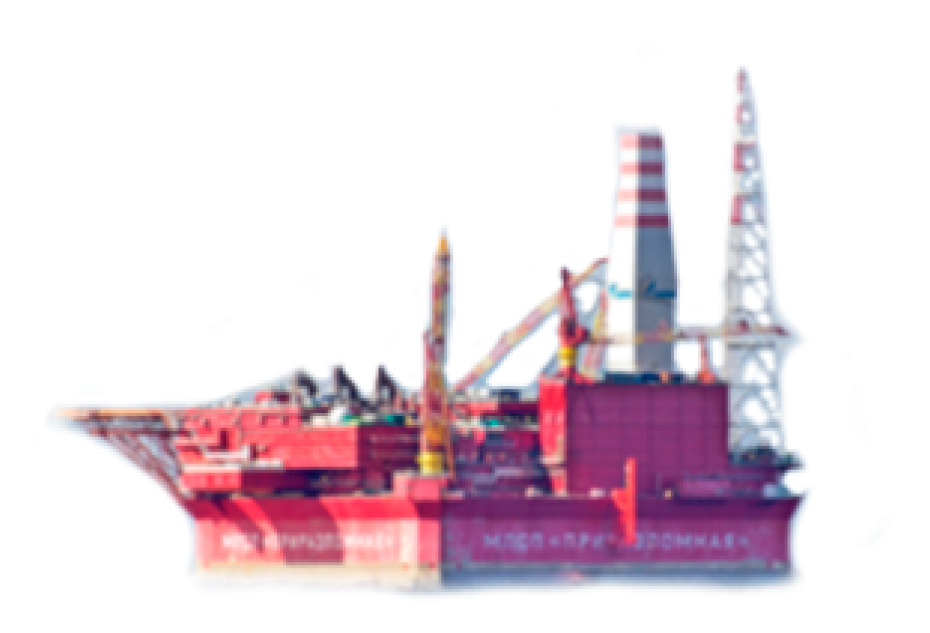




BA students majoring in petroleum engineering, exploration of offshore fields, construction, and engineering of the Arctic
BA Students
Participation




MA students majoring in petroleum engineering, exploration of offshore fields, construction, and engineering of the Arctic
MA Students
MA students majoring in petroleum engineering, exploration of offshore fields, construction, and engineering
of the Arctic
of the Arctic
BA students majoring in petroleum engineering, exploration of offshore fields, construction, and engineering
of the Arctic
of the Arctic
International school
“Arctic Engineering"
“Arctic Engineering"
will gives you the following benefits
3 ECTS
total workload
total workload
Actual knowledge
Networking
3 ECTS points are summed up to indicate the total
workload for a school study, as well as a certificate
participation that will help you to achieve academic
and education success
workload for a school study, as well as a certificate
participation that will help you to achieve academic
and education success
At school you will receive the most of current interest
knowledge on study and development Arctic region.
And you will be in the trend of scientific discussion
of the development of the Arctic
knowledge on study and development Arctic region.
And you will be in the trend of scientific discussion
of the development of the Arctic
At school you will meet with students and researchers,
studying the Arctic. New acquaintances help you do
your scientific work better, as well as open new career
perspectives
studying the Arctic. New acquaintances help you do
your scientific work better, as well as open new career
perspectives
3 ECTS points are summed up to indicate
the total workload for a school study, as well
as a certificate participation that will help you
to achieve academic and education success
the total workload for a school study, as well
as a certificate participation that will help you
to achieve academic and education success
At school you will receive the most of current
interest knowledge on study and development
Arctic region. And you will be in the trend
of scientific discussion of the development
of the Arctic
interest knowledge on study and development
Arctic region. And you will be in the trend
of scientific discussion of the development
of the Arctic
At school you will meet with students
and researchers, studying the Arctic. New
acquaintances help you do your scientific work
better, as well as open new career perspectives
and researchers, studying the Arctic. New
acquaintances help you do your scientific work
better, as well as open new career perspectives
will gives you
the following benefits
the following benefits

“Arctic Engineering” explores the following
problems of study and exploration of the Arctic
problems of study and exploration of the Arctic
Energy industry
Energy consumption is increasing annually due to the increase
in the world's population and the energy intensity of production.
It is the main consumer of petroleum products and produces
the largest amount of greenhouse gases, in particular carbon
dioxide
This has a detrimental effect on the ecology of the planet.
Therefore, the use of new, unconventional hydrocarbon reserves,
such as gas hydrates and gas fields and alternative sources
of energy, which are concentrated in the Arctic region, is a priority
task in the new chapter in the development of world energy
industry
New energy projects require unique and innovative approaches
in modeling, design and development. The school will introduce
you to the latest developments in the field of energy industry
in the world's population and the energy intensity of production.
It is the main consumer of petroleum products and produces
the largest amount of greenhouse gases, in particular carbon
dioxide
This has a detrimental effect on the ecology of the planet.
Therefore, the use of new, unconventional hydrocarbon reserves,
such as gas hydrates and gas fields and alternative sources
of energy, which are concentrated in the Arctic region, is a priority
task in the new chapter in the development of world energy
industry
New energy projects require unique and innovative approaches
in modeling, design and development. The school will introduce
you to the latest developments in the field of energy industry
“Arctic Engineering” explores the following
problems of study and exploration
of the Arctic
problems of study and exploration
of the Arctic
“Arctic Engineering” explores
the following problems of study
and exploration of the Arctic
the following problems of study
and exploration of the Arctic
Energy consumption is increasing annually
due to the increase in the world's population and the energy intensity of production.
It is the main consumer of petroleum
products and produces the largest amount
of greenhouse gases, in particular carbon
dioxide
This has a detrimental effect on the ecology
of the planet. Therefore, the use of new, unconventional hydrocarbon reserves,
such as gas hydrates and gas fields
and alternative sources of energy, which
are concentrated in the Arctic region,
is a priority task in the new chapter
in the development of world energy
industry
New energy projects require unique
and innovative approaches in modeling, design and development. The school will introduce you to the latest developments
in the field of energy industry
due to the increase in the world's population and the energy intensity of production.
It is the main consumer of petroleum
products and produces the largest amount
of greenhouse gases, in particular carbon
dioxide
This has a detrimental effect on the ecology
of the planet. Therefore, the use of new, unconventional hydrocarbon reserves,
such as gas hydrates and gas fields
and alternative sources of energy, which
are concentrated in the Arctic region,
is a priority task in the new chapter
in the development of world energy
industry
New energy projects require unique
and innovative approaches in modeling, design and development. The school will introduce you to the latest developments
in the field of energy industry


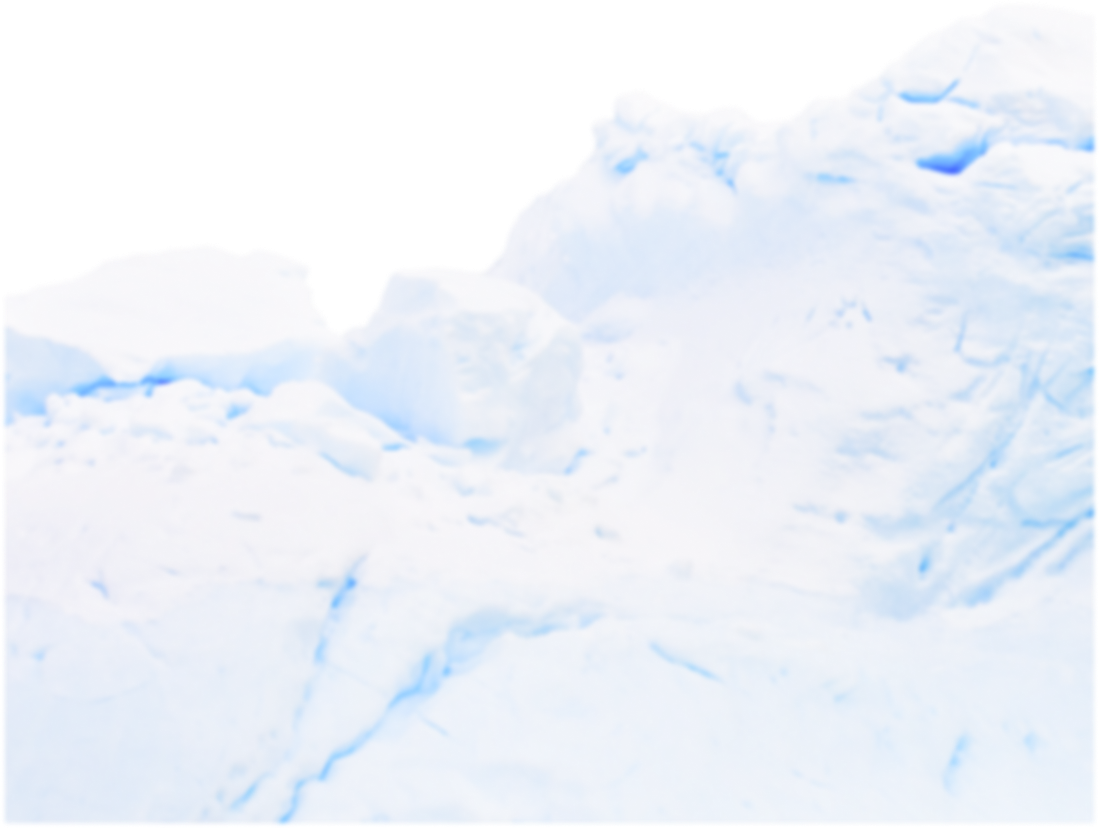




Construction
The Arctic regions are strategically important territories for Russia.
At present, major projects for the modernization and reconstruction
of the social, industrial, housing, transport, and other infrastructure
of the Arctic require new construction regulations that take into
account the extreme permafrost conditions.
The Arctic regions have a number of specific features that make
it difficult or impossible to develop and build infrastructure solely
using technologies that have previously been tested at existing
fields. Man made impacts are radically changing the thermal state
of rocks in the Arctic zone, which contributes to processes that
increase the risk of the deformation or destruction of buildings.
The remoteness from industrialized regions, the lack of developed
infrastructure and the inability to build it quickly as well
as unfavourable geo-climatic and challenging engineering
and geological conditions all create significant difficulties
for the development of Arctic regions.
Our aim is to find ways to minimize all kinds of burdens
on the environment, both during the construction and operation
of facilities. To achieve this goal, modern technical solutions
that optimize all aspects of interaction with the environment need
to be developed and applied, including the use of minimally
manned, energy-saving, and eco-friendly technologies.
At present, major projects for the modernization and reconstruction
of the social, industrial, housing, transport, and other infrastructure
of the Arctic require new construction regulations that take into
account the extreme permafrost conditions.
The Arctic regions have a number of specific features that make
it difficult or impossible to develop and build infrastructure solely
using technologies that have previously been tested at existing
fields. Man made impacts are radically changing the thermal state
of rocks in the Arctic zone, which contributes to processes that
increase the risk of the deformation or destruction of buildings.
The remoteness from industrialized regions, the lack of developed
infrastructure and the inability to build it quickly as well
as unfavourable geo-climatic and challenging engineering
and geological conditions all create significant difficulties
for the development of Arctic regions.
Our aim is to find ways to minimize all kinds of burdens
on the environment, both during the construction and operation
of facilities. To achieve this goal, modern technical solutions
that optimize all aspects of interaction with the environment need
to be developed and applied, including the use of minimally
manned, energy-saving, and eco-friendly technologies.
The Arctic regions are strategically important
territories for Russia. At present, major projects
for the modernization and reconstruction
of the social, industrial, housing, transport,
and other infrastructure of the Arctic require
new construction regulations that take into
account the extreme permafrost conditions.
The Arctic regions have a number of specific
features that make it difficult or impossible
to develop and build infrastructure solely
using technologies that have previously been
tested at existing fields. Man made impacts
are radically changing the thermal state
of rocks in the Arctic zone, which contributes
to processes that increase the risk
of the deformation or destruction of buildings.
The remoteness from industrialized regions,
the lack of developed infrastructure
and the inability to build it quickly as well
as unfavourable geo-climatic and challenging
engineering and geological conditions all
create significant difficulties
for the development of Arctic regions.
Our aim is to find ways to minimize all kinds
of burdens on the environment, both during
the construction and operation of facilities.
To achieve this goal, modern technical solutions that optimize all aspects
of interaction with the environment need to be developed and applied, including the use
of minimally manned, energy-saving, and
eco-friendly technologies.
territories for Russia. At present, major projects
for the modernization and reconstruction
of the social, industrial, housing, transport,
and other infrastructure of the Arctic require
new construction regulations that take into
account the extreme permafrost conditions.
The Arctic regions have a number of specific
features that make it difficult or impossible
to develop and build infrastructure solely
using technologies that have previously been
tested at existing fields. Man made impacts
are radically changing the thermal state
of rocks in the Arctic zone, which contributes
to processes that increase the risk
of the deformation or destruction of buildings.
The remoteness from industrialized regions,
the lack of developed infrastructure
and the inability to build it quickly as well
as unfavourable geo-climatic and challenging
engineering and geological conditions all
create significant difficulties
for the development of Arctic regions.
Our aim is to find ways to minimize all kinds
of burdens on the environment, both during
the construction and operation of facilities.
To achieve this goal, modern technical solutions that optimize all aspects
of interaction with the environment need to be developed and applied, including the use
of minimally manned, energy-saving, and
eco-friendly technologies.


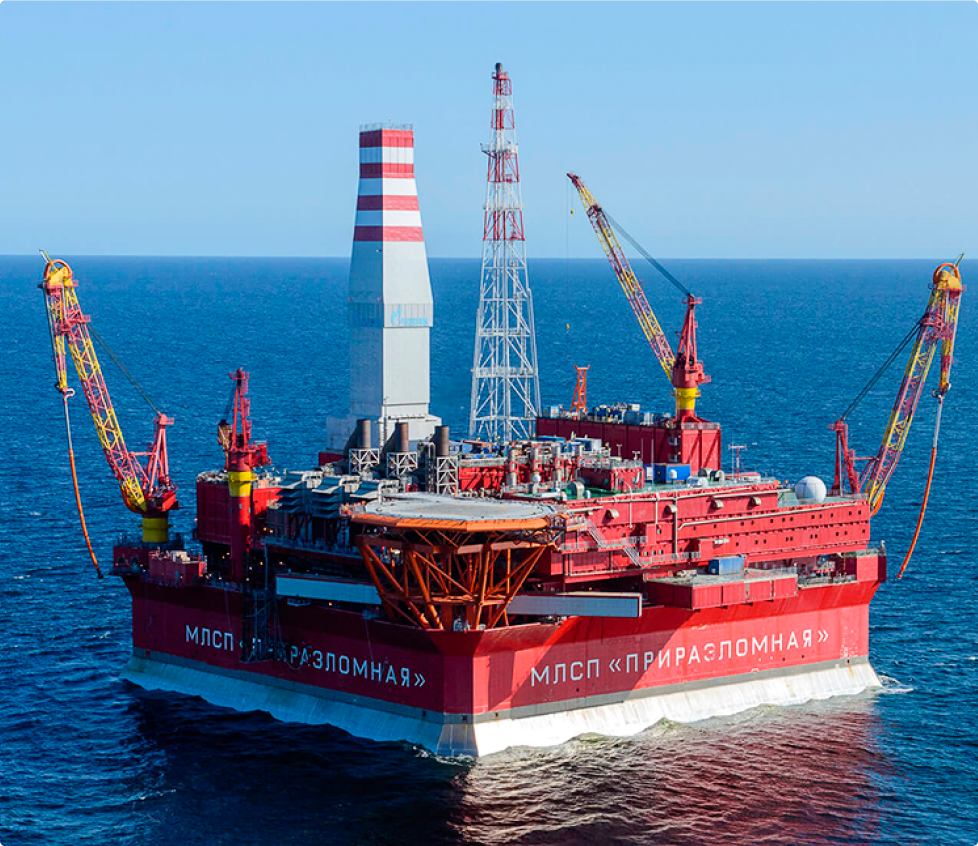
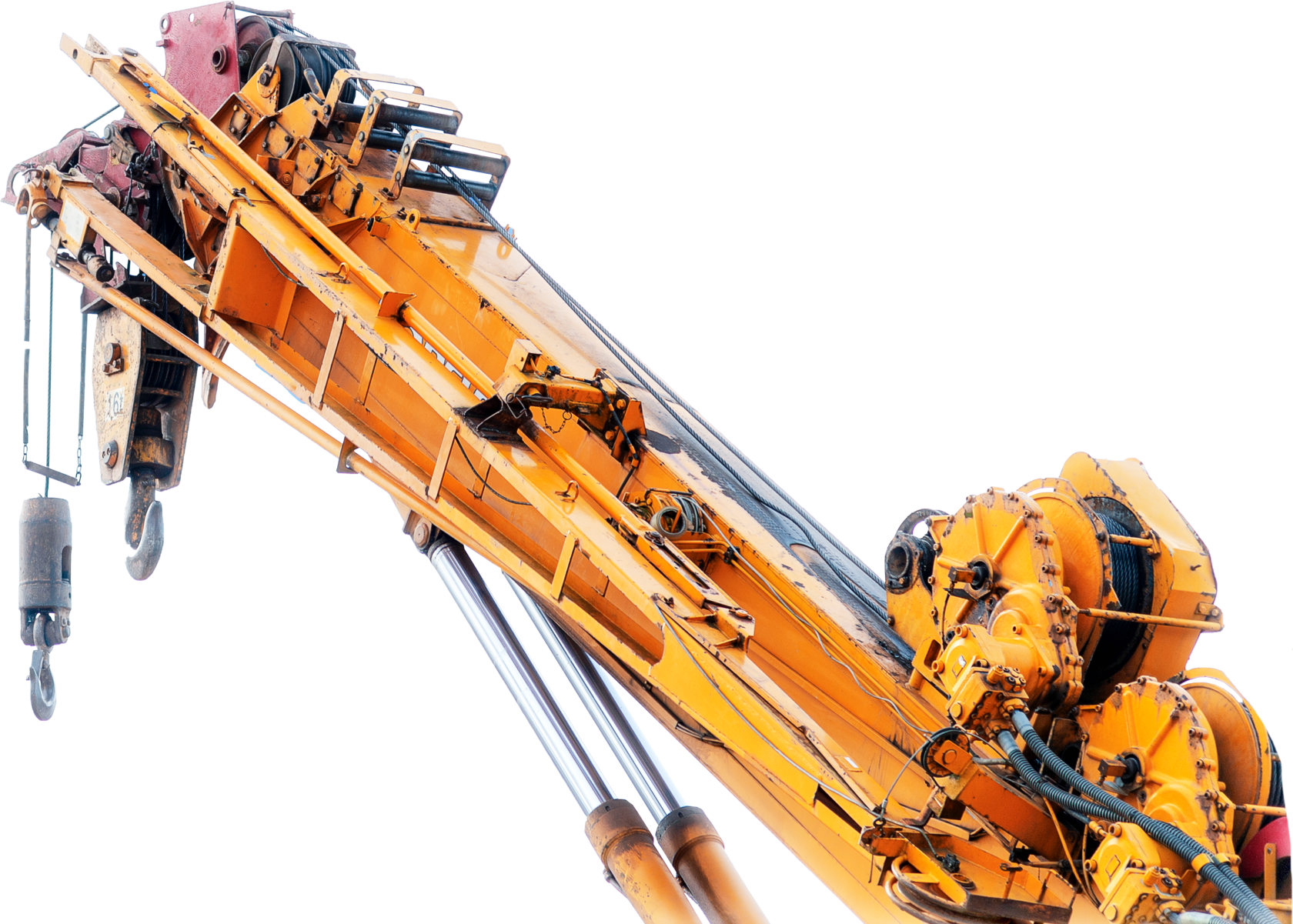

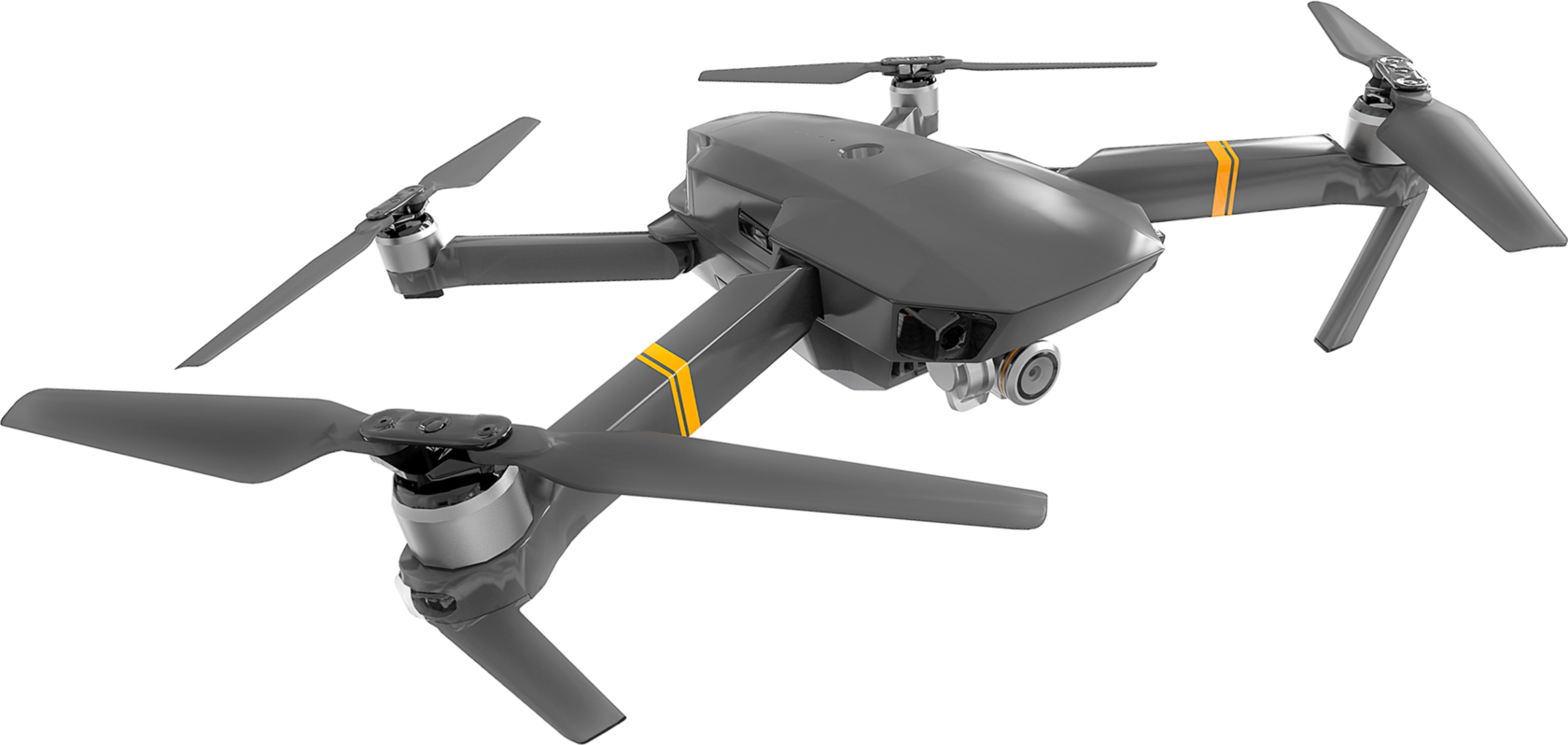



Environment
The arctic is a pristine environment that has been largely untouched
by economic development, and as a consequence, any impact from
industrial operation tends to be very noticeable.
The extreme nature of the climate also means that plants
and animals in the area are usually living on the edge
of the maximum carrying capacity of their habitat.
A small effect for example from construction processes may have
a large impact on these plants and animals. In non-arctic regions,
a typical mitigation measure during construction is to provide
alternative habitats by replacing or reinstating areas that were
damaged in the past.
In the arctic, this is not possible as there is no previously damaged
habitat nearby. An extensive and long-term baseline survey
of the local habitat is necessary in order to carefully document
pre-existing conditions and help establish what must be done
during the operational and reclamation phases.
by economic development, and as a consequence, any impact from
industrial operation tends to be very noticeable.
The extreme nature of the climate also means that plants
and animals in the area are usually living on the edge
of the maximum carrying capacity of their habitat.
A small effect for example from construction processes may have
a large impact on these plants and animals. In non-arctic regions,
a typical mitigation measure during construction is to provide
alternative habitats by replacing or reinstating areas that were
damaged in the past.
In the arctic, this is not possible as there is no previously damaged
habitat nearby. An extensive and long-term baseline survey
of the local habitat is necessary in order to carefully document
pre-existing conditions and help establish what must be done
during the operational and reclamation phases.


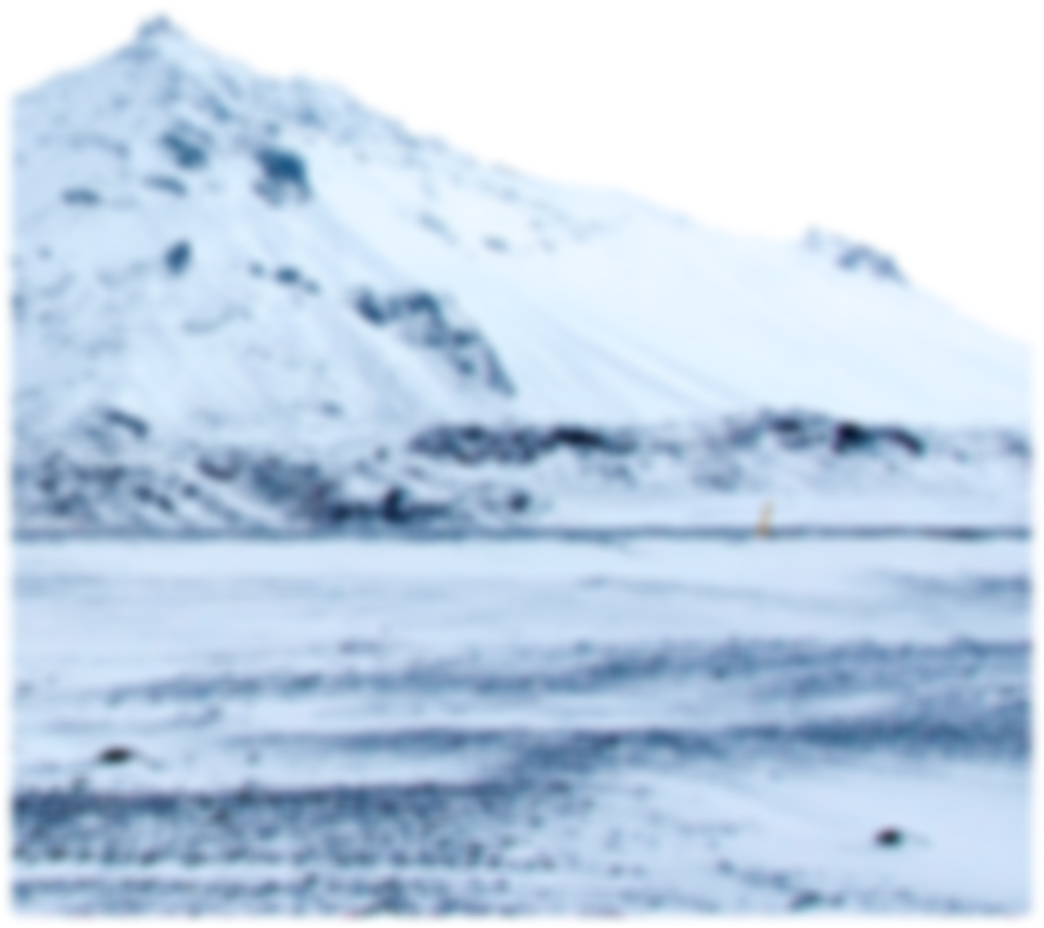

The arctic is a pristine environment that has been
largely untouched by economic development,
and as a consequence, any impact from
industrial operation tends to be very noticeable.
The extreme nature of the climate also means
that plants and animals in the area are usually
living on the edge of the maximum carrying
capacity of their habitat.
A small effect for example from construction
processes may have a large impact on these
plants and animals. In non-arctic regions,
a typical mitigation measure during construction
is to provide alternative habitats by replacing
or reinstating areas that were damaged
in the past.
In the arctic, this is not possible as there
is no previously damaged habitat nearby. An
extensive and long-term baseline survey
of the local habitat is necessary in order
to carefully document pre-existing conditions
and help establish what must be done during
the operational and reclamation phases.
largely untouched by economic development,
and as a consequence, any impact from
industrial operation tends to be very noticeable.
The extreme nature of the climate also means
that plants and animals in the area are usually
living on the edge of the maximum carrying
capacity of their habitat.
A small effect for example from construction
processes may have a large impact on these
plants and animals. In non-arctic regions,
a typical mitigation measure during construction
is to provide alternative habitats by replacing
or reinstating areas that were damaged
in the past.
In the arctic, this is not possible as there
is no previously damaged habitat nearby. An
extensive and long-term baseline survey
of the local habitat is necessary in order
to carefully document pre-existing conditions
and help establish what must be done during
the operational and reclamation phases.
International School
Contact us
Ramil Guliev
Deputy for International Cooperation
NArFU. Higher School of Energy, Oil and Gas
NArFU. Higher School of Energy, Oil and Gas



Any questions, please, do not hesitate
to contact the organizers
to contact the organizers
Dr./Ass. Prof. Maria Frolova
Deputy for International Cooperation
NArFU. Higher School of Engineering
NArFU. Higher School of Engineering



Any questions, please,
do not hesitate to contact
the organizers
do not hesitate to contact
the organizers
Dr./Ass. Prof.
Maria Frolova
Maria Frolova
International School
ARCTIC ENGINEERING

Apply for Online School



Clicking on the button
I agree tothe privacy policy
I agree tothe privacy policy
Or by e-mail
Via messenger




For joining WeChat
please scan QR-code with your device

Arctic Engineering Chat

